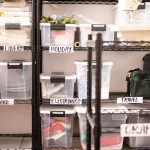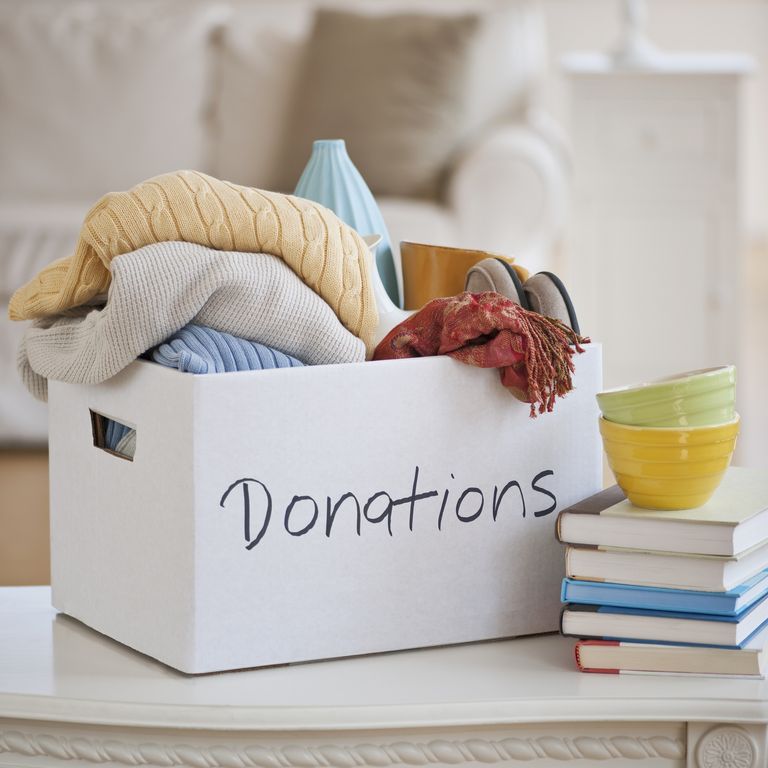For a lot of us, spending more time will spark an inevitable urge to do some decluttering, whether that means tidying the linen closet or doing a full basement clean-out. It also means that you’ll probably end up with a whole pile of household items to donate to those in need—and, right now, that’s more important than ever. We’ve rounded up a list of resources to help you figure out where you can drop off your unneeded goods while safely social distancing.
Household Items
The Salvation Army is still accepting in-store donations of basic supplies at select service centers across the country. Right now, its most-wanted list includes cleaning and sanitizing items like disinfectant spray and laundry detergent; household paper products; nonperishable foods, preferably packaged in cans, boxes or bags; baby supplies, including formula, food, bottles, pacifiers, diapers and wipes; and unused personal hygiene products like shampoo and toothbrushes. Head to the Salvation Army website to locate your nearest service center, and call to ensure that they’re open before dropping anything off.
While some Goodwill stores are open for donations of clothing and household items, many of its locations have had to close drop-off locations due to local government regulations, so check with your local Goodwill before packing up your car. The organization is asking that donors refrain from leaving items outside if the location is closed; instead, have them organized, bagged, and ready to drop off as soon as the store reopens.
Medical Supplies
Hopefully, you listened to the CDC’s advice not to stockpile surgical masks for personal use. But if you did, now is the time to donate them (or any other personal protective equipment) to a local hospital or medical center. MedSupplyDrive, a student-led non-profit dedicated to getting PPE to healthcare workers and first responders, has set up a website with information about how to donate masks and other in-demand items like bleach, non-latex gloves, and even rain ponchos and bandanas.
Pantry Staples
With an increasing number people losing their jobs or unable to work due to illness, food bank are facing higher demand than ever. If you have a cupboard full of unopened, non-perishable food items that you probably won’t be able to finish no matter how long you’re stuck at home, get in touch with a local food pantry to see if they can be donated. (Check out Feeding America, FoodPantries.org, or AmpleHarvest.org if you need help locating one.)
Pet Supplies
We’re all extra-thankful for our furry friends right now. If you have a surplus of unneeded pet supplies at home, the Humane Society recommends calling local animal shelters to find out if they’re accepting donations. You can also find out whether your community has a local pet food pantry, which collects donations of unopened dog and cat food to distribute to pet owners in need.
School and Office Supplies
An0ther way to help: Donate your excess school or office supplies to the millions of kids transitioning to at-home learning. Local school districts and chapters of organizations like like Girls Inc. and the Salvation Army are asking for new or gently used school supplies and books to send to low-income families.
Credit: HouseBeautiful







